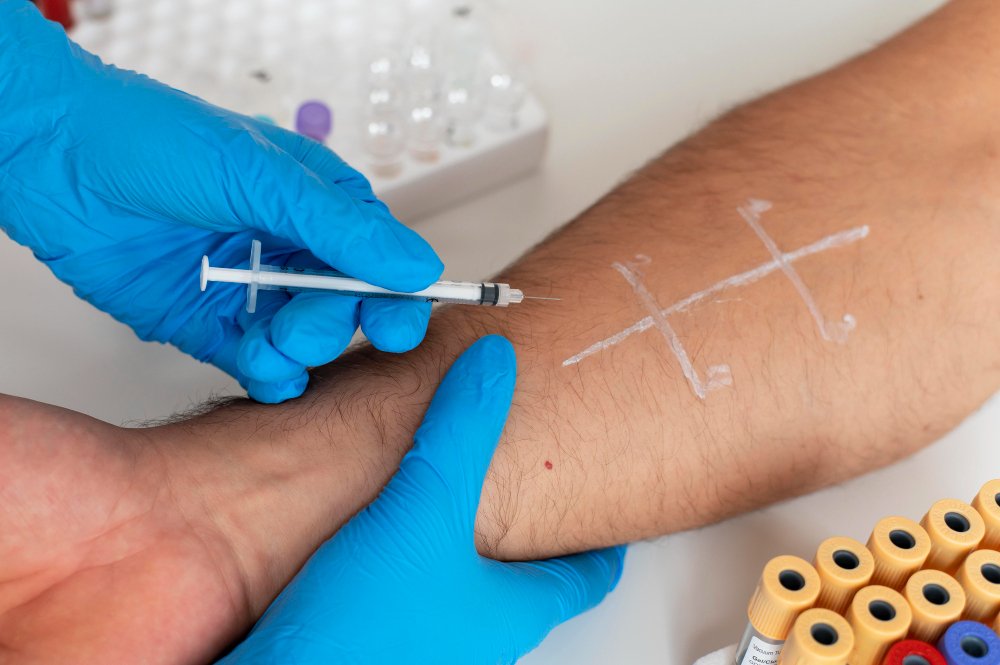What Can Different Allergy Tests Tell You About Your Health?
If you suffer from seasonal sniffles or suspect that your body reacts poorly to certain substances, determining the exact cause is crucial. For residents in OKC, allergy testing is a reliable method to identify specific allergens. This process pinpoints what triggers your symptoms and guides effective management strategies. Keep scrolling to learn why pursuing allergy testing in OKC could be the key to alleviating your discomfort and improving your quality of life.
Understanding Results and Treatment Options
Once your allergy test is complete, your doctor will review the outcomes with you and propose a tailored treatment plan. This plan often includes tactics to avoid triggers, medications to ease symptoms, and possibly immunotherapy for longer-term alleviation.
Managing Allergy Symptoms Effectively
Treatment for allergy symptoms varies based on the allergy's nature and intensity. Simple remedies like over-the-counter antihistamines, decongestants, and corticosteroids can mitigate common symptoms such as itchy eyes, nasal congestion, and sneezing.
In cases of more intense allergies, prescription medications might be necessary. Additionally, your doctor could suggest allergen immunotherapy. This method involves controlled exposure to the allergen in increasing amounts, aiming to enhance your body's tolerance. This approach particularly benefits individuals whose allergies aren't effectively managed with conventional treatments.
Sublingual Immunotherapy Is A User-Friendly Allergy Treatment Approach
Sublingual immunotherapy (SLIT) administers small allergen doses under the tongue, offering a convenient treatment alternative. This method helps increase your immune system's tolerance to the allergen, thus diminishing your symptoms. SLIT's advantage lies in its home administration, making it a simpler choice over traditional allergy shots. This treatment has shown effectiveness, particularly for environmental and seasonal allergies.
It is essential to note that while these treatments can lessen symptoms, they do not cure allergies. The most effective strategy for managing allergies involves avoiding known allergens and adhering to the treatment regimen your healthcare provider recommends like allergy testing.
You can significantly enhance your day-to-day comfort and well-being by thoroughly understanding your allergy test results and committing to the prescribed treatment plan.
Some Frequently Asked Questions About Allergy Testing
What Allergy Test is Most Reliable?
The skin prick test, also called the puncture or scratch test, stands out as the most reliable due to its high sensitivity and quick feedback, often within 15-20 minutes. This allergy testing can assess reactions to multiple allergens at once, making it a popular choice for its efficiency and precision.
Which Tests Are Commonly Used for Allergy Diagnosis?
Allergy diagnosis primarily relies on two tests: the skin prick test and the blood test. The skin prick test exposes the skin to small amounts of allergens to check for reactions, while the blood test quantifies specific antibodies triggered by allergens in the bloodstream.
How Do Allergy Tests Differ?
The main types of allergy testing are skin and blood tests. Skin tests provide immediate results by applying allergen extracts to the skin and watching for reactions. Blood tests for severe allergies are less invasive, measuring allergen-specific antibodies. Healthcare providers prefer them over other diagnostic methods.
How Can You Identify Your Allergy Type?
Determining your allergy type typically involves an evaluation by an allergist, who may use a skin prick test or blood test. These tests introduce various allergens under controlled conditions and observe your body's reactions to identify specific allergies.
What Reactions Might You Expect from an Allergy Test?
Typical reactions to an allergy test might include redness, swelling, or itching at the test site, similar to a mosquito bite. Allergic symptoms manifest swiftly; lack of reaction indicates no allergy to tested substances.
How Are Drug Allergies Tested?
Doctors may employ a skin test to diagnose drug allergies by applying small amounts of the drug directly onto the skin. A reaction suggests an allergy. Sometimes, healthcare providers may also employ blood tests to further investigate allergic responses to medications.
Can Medications Be Tested for Allergic Reactions?
Allergy testing for medications is possible and generally involves skin tests, challenge tests, or blood tests. These methods help determine if you have an allergy to specific drugs, though not all drug allergies may be detectable by these tests. Consulting with a healthcare provider is recommended for accurate diagnosis and management.
Ready to Alleviate Allergy Symptoms?
Take control of your allergies today! Oklahoma Otolaryngology Associates, LLC offers comprehensive allergy testing in OKC to help you understand your allergies and manage your symptoms effectively. Schedule your consultation now and start your journey toward a healthier, more comfortable life.
**Disclaimer: The information on this page is not intended to be a doctor's advice, nor does it create any form of patient-doctor relationship.

